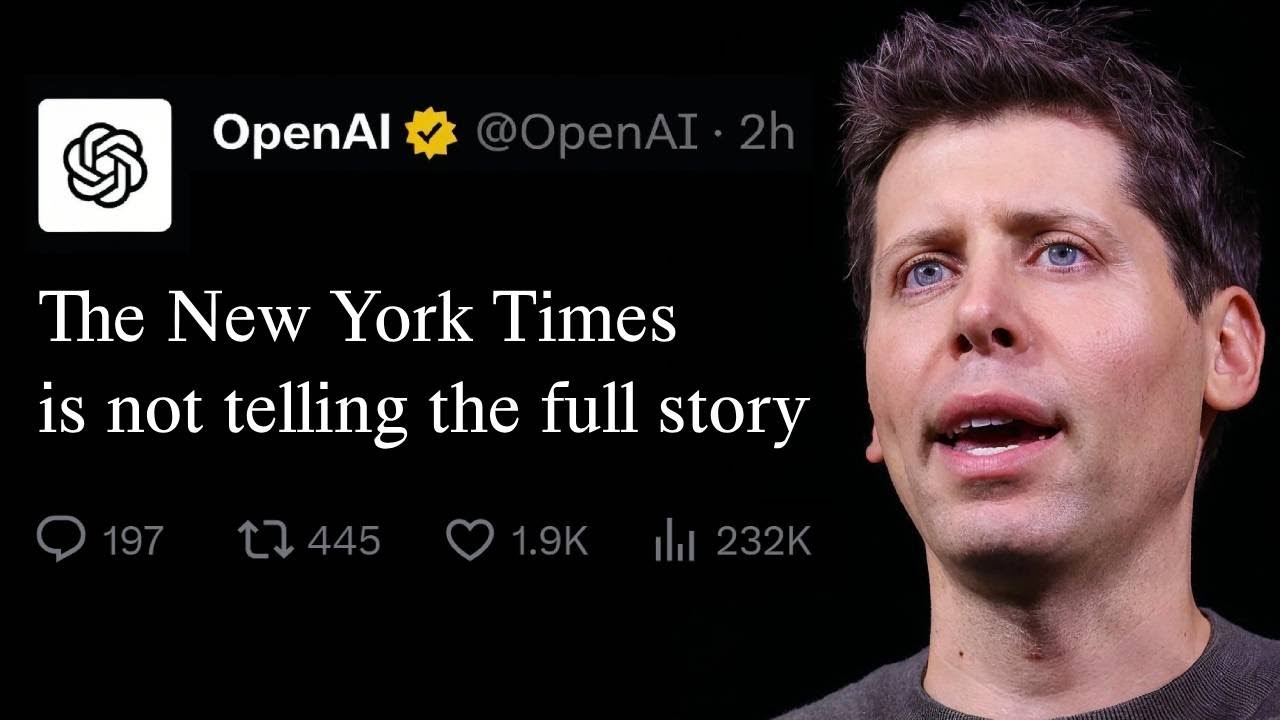OpenAI Counters New York Times Lawsuit with Evidence of Manipulated Prompts
OpenAI has responded to the lawsuit filed by the New York Times with a strong statement denying the allegations and providing evidence that suggests the newspaper manipulated prompts to create false claims against OpenAI’s language model, GPT. The response sheds light on the complex battle surrounding AI ethics and copyright infringement in the digital age.
Challenging the Claims
The New York Times accused OpenAI of copyright infringement, alleging that the language model, GPT, replicated full stories written by the newspaper. However, OpenAI argued that the Times manipulated prompts to force GPT into regurgitating content in a way that was not typical of the model’s behavior. This led OpenAI to counter the allegations, stating that the lawsuit is “without merit.”
AI in the Crossfire
The lawsuit and response bring to the fore questions about the understanding of how large language models function. The debate centers around whether training a model on text data is fair use and if the statistical connections drawn by the model’s algorithms constitute copyright infringement. This friction highlights a broader concern about the role of AI in journalism and intellectual property rights.

Global Implications
The implications of the legal battle extend beyond the realm of copyright infringement, raising concerns about the impact on AI research and development. OpenAI’s response suggests a potential threat to the progress and potential benefits that AI can bring to the world, including advancements in automation, drug discovery, and robotics. It also questions the responsibility of reputable news sources in upholding ethical journalism standards in the digital age.
A Call for Transparency
As the dispute unfolds, it becomes increasingly crucial for news organizations to demonstrate transparency and ethical conduct in their dealings and account for all sides of the story. The engagement between OpenAI and the New York Times has spotlighted the need for open dialogue and respectful collaboration in navigating the intersection between AI, journalism, and legal frameworks.
As the narrative continues to evolve, it is important to approach the developments with a discerning eye and an open mind, seeking meaningful insights beyond the legalities at hand. Embracing the complexities of AI technology and the critical role of journalism in shaping public discourse can lead to meaningful progress.
Ultimately, the response from OpenAI serves as a reminder of the significance of ethical conduct, transparency, and informed decision-making in the evolving landscape of AI and media.
Amidst the legal battles and controversies, it is essential to continue fostering a constructive dialogue and harnessing the potential of AI technology for the collective benefit of society.









![VindexCraft [CityRP] [Jobs] [Custom Vehicles] [Economy]](https://game-drip.com/wp-content/uploads/2024/04/gamedrip-news-latest-67.jpg)











